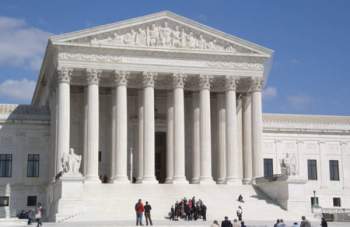
US District Court Easy Overview

In the United States, the first court level of the Federal judicial system is the U.S. District Court, followed by the Court of Appeals and the Supreme Court. When a Federal violation is being heard in court, the court proceedings will occur in one of the U.S. District Courts.
The United States District Court is a trial court that handles both criminal and civil cases. In the U.S. District Court, Federal cases are heard, and subsequently a jury delivers a verdict on these cases. Defendants will then be sentenced appropriately. When United States citizens are selected for jury duty they may potentially serve on a jury within a District Court.
Following a trial in a District Court, a defendant may request that the verdict be reviewed by the Court of Appeals, and in some instances, the verdict will be overturned. There are many different U.S. District Courts located in states throughout the country. As a result, an individual who is required to appear in court will have reasonable access to a District Court. There are numerous legal violations that may be addressed in a District Court.
Any offense that involves the violation of Federal laws will fall under the jurisdiction of the United States District Court, as opposed to local or State courts. The list of potential Federal offenses is extensive. For example, mail theft, illegal immigration, securities fraud, possession of an illegal substance, cyber crimes, and embezzlement are all examples of Federal crimes.
In addition, assault and murder can be Federal crimes, depending on who is involved, where the events occur, and the surrounding circumstances. Therefore, U.S. District Courts address a wide range of different cases.
NEXT: What Are District Courts





















